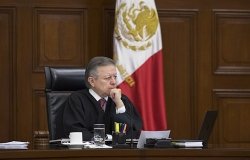Book Launch: "Liberalization Against Democracy: The Local Politics of Economic Reform in Tunisia"
Stephen J. King, Assistant Professor of Government, Georgetown University, and Woodrow Wilson Center Fellow
Overview
Stephen King, former Woodrow Wilson Center fellow and Assistant Professor of Government at Georgetown University, discussed his new book Liberalization Against Democracy: The Local Politics of Economic Reform in Tunisia. The volume explores a local-level study of a rural Tunisian town to illustrate why market-oriented reforms have not yet fostered democratization or led to political liberalization.
King discussed his entry into the field, having lived in rural communities in Morocco, and his peaked interest in the Ben Ali era during which market reforms accelerated and land privatization increased in Tunisia. His research focused on how rural communities behaved in the face of structural adjustment programs of the 1990s. His interviews, which largely followed up on a study conducted by Mira Zussman one decade earlier in Tebourba (40 kilometers from Tunis), produced a snapshot of the community in terms of who owned land and how they obtained it. Economic reforms in this community increased risk instead of opportunity for the small peasantry. In order to deal with these equity issues the state reinforced cultural traditionalism based on an Islamic moral economy of limited redistribution from wealthy to poor.
King's research includes: a) taking a historical perspective of structural adjustment policies with regard to land privatization; b) considering the rational actor/moral economy debate about peasant behavior; c) determining the social costs of economic reform, specific to rural communities, d) examining why social organizing and political participation have moved back to the family unit and increased dependence on wealthy patrons (e.g. a one-year farmers association dormancy period); and e) a look at local issues as a window to the national political economy of Tunisia. Previous market reforms were done without equity in mind and the outcome was, in his opinion, less productive than the new 'shared approach' to economic reform can be in terms of hopes for political liberalization and democratization.
Hosted By

Middle East Program
The Wilson Center’s Middle East Program serves as a crucial resource for the policymaking community and beyond, providing analyses and research that helps inform US foreign policymaking, stimulates public debate, and expands knowledge about issues in the wider Middle East and North Africa (MENA) region. Read more

Africa Program
The Africa Program works to address the most critical issues facing Africa and US-Africa relations, build mutually beneficial US-Africa relations, and enhance knowledge and understanding about Africa in the United States. The Program achieves its mission through in-depth research and analyses, public discussion, working groups, and briefings that bring together policymakers, practitioners, and subject matter experts to analyze and offer practical options for tackling key challenges in Africa and in US-Africa relations. Read more
Thank you for your interest in this event. Please send any feedback or questions to our Events staff.









